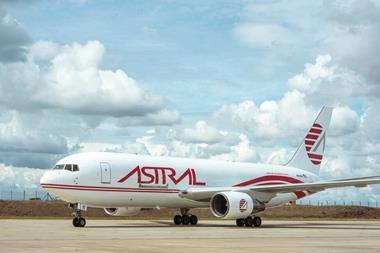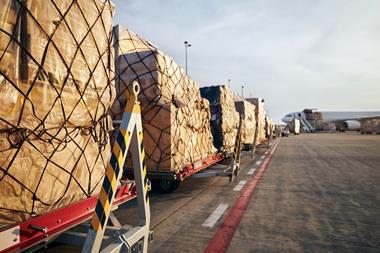The logistics industry has faced a period of unprecedented challenges in recent years and, as a result, the resilience of the supply chain across the globe has received unprecedented attention.
The World Economic Forum defines supply chain resilience as "the ability of a global supply chain to reorganise and deliver its core function continually, despite the impact of external and/or internal shocks to the system".
While the logistics industry has proved itself to be incredibly resilient by continuing to deliver the needs of the nation, the situation has not been without its challenges, with issues such as port delays, a shortage of HGV drivers and businesses incurring rising costs impacting the supply chain.
Although it is hard to predict the challenges of the future, businesses are being encouraged to analyse their operations and review the potential risks, either operationally (within a corporate boundary such as a warehouse fire or loss of a supplier), externally (as either part of the wider supply chain, such as rising airfreight or an airport closure) or globally (such as climate change).
By reviewing these potential risks, mitigations could be found prior to the event unfolding, therefore reducing that impact on that business, or the wider supply chain.
During some of the recent crises in which other modes of transport were affected – such as the blocking of the Suez Canal or the skills shortage – business, customers and shippers increasingly favoured the reliability of air cargo.
However, given its higher cost over modes such as deepsea shipping and road, it will be interesting to see whether airfreight will play a greater role in business’ resilience preparations and risk mitigations moving forwards.
Airfreight plays a vital role in the UK’s economy: £86bn of gross value added depends on airfreight.
And while Logistics UK would welcome air cargo playing a more prominent role in other modes’ mitigation plans, in order to achieve this, it is also crucial that the airfreight sector itself is prepared.
In the view of Logistics UK, a supply of sufficiently skilled labour is critical to this; however, with shortages a potential risk for the sector, it is vital that the sector stimulates interest and engagement to attract the next generation of workers.
Employment in Great Britain in the Freight Air Transport sector was 2,135 in 2020, a gradual 20% decrease from 2015.
And while 2020 data can be affected by Covid-19, as the industry now looks to recover from the pandemic, it is important to ensure sufficient staffing with the right skills is available for effective operations.
As a result, Logistics UK particularly welcomed recommendations included within the Transport Select Committee’s report, UK aviation: reform to take-off for government to prioritise vetting for airport and airlines staff to speed up recruitment and prevent individuals accepting job offers elsewhere while they wait for clearance.
While this would be an encouraging step forward, it is vital government works together with industry to explore all ways it can support the recruitment and retention of airfreight staff that help to keep this significant sector of the UK’s economy flowing.
https://www.aircargonews.net/monthly-exclusive/supply-chain-spotlight-logistics-uk-route-to-net-zero/
https://www.aircargonews.net/policy/environment/supply-chain-spotlight-greener-skies-ahead/















